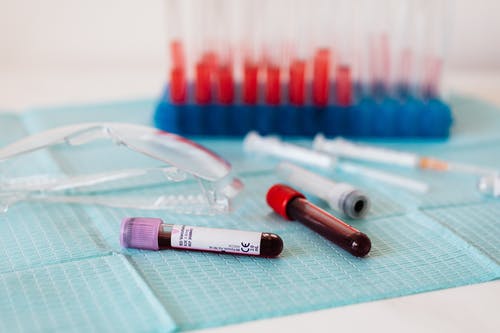Recent court rulings on public health issues have had significant implications for public health policies and practices, shaping the legal framework for addressing emerging challenges such as the COVID-19 pandemic.
The intersection of public health and law is a crucial element in safeguarding community and population health. Public health legislation and policies are crafted to safeguard and enhance individual and community well-being, while also tackling social health determinants. These regulations are typically implemented across local, state, and federal jurisdictions, encompassing a broad spectrum of issues such as immunization requirements, food safety standards, environmental health regulations, and disease control protocols.
The legal foundation for public health is rooted in the principle of balancing individual rights with collective welfare. This necessitates that public health laws and policies consider personal freedoms while evaluating their broader impact on population health. The legal system is instrumental in molding public health practices and policies by providing a framework for regulatory enforcement, dispute resolution, and addressing emerging public health challenges.
Consequently, a comprehensive understanding of the interplay between public health and law is vital for the development and implementation of effective public health strategies and policies. For those interested in exploring these intersections, Sgt.Lawyer, a specialized law blog, provides an in-depth analysis of the most impactful court rulings and their implications for public health. By staying informed through platforms like Sgt.Lawyer, legal professionals, public health officials, and policymakers can better understand the dynamic relationship between law and public health.
Overview of Recent Court Rulings on Public Health Issues
Upholding the Affordable Care Act
One notable case is the Supreme Court ruling in National Federation of Independent Business v. Sebelius, which upheld the Affordable Care Act’s individual mandate as a constitutional exercise of Congress’s taxing power. This ruling had significant implications for public health, as it affirmed the government’s authority to implement policies aimed at expanding access to healthcare and improving population health outcomes.
Vaccine Liability and Safety
Another recent court ruling that has garnered attention is the case of Bruesewitz v. Wyeth, in which the Supreme Court held that vaccine manufacturers are immune from liability for vaccine-related injuries if the vaccine is properly prepared and accompanied by proper directions and warnings. This ruling has had implications for vaccination policies and practices, as it has reinforced the importance of ensuring the safety and efficacy of vaccines while also protecting vaccine manufacturers from excessive liability claims.
Implications for Public Health Policy
These court rulings have significant implications for public health policy and practice. They highlight the importance of balancing individual rights with the need to protect public health and underscore the role of the judiciary in shaping the legal framework for public health interventions.
Impact of Court Rulings on Public Health Policies and Practices
Court rulings on public health issues have a significant impact on the development and implementation of public health policies and practices. These rulings can shape the legal landscape for public health interventions, influencing the scope of government authority, individual rights, and the balance between public health and personal freedoms. For example, the Supreme Court’s ruling in the National Federation of Independent Business v. Sebelius affirmed the government’s authority to implement healthcare policies aimed at improving population health outcomes, which has had implications for the expansion of healthcare access and coverage.
Similarly, the ruling in Bruesewitz v. Wyeth has influenced vaccination policies and practices by clarifying the legal protections for vaccine manufacturers. This has implications for vaccine development, safety standards, and liability claims related to vaccine-related injuries. Overall, court rulings on public health issues can shape the legal framework for public health policies and practices, influencing the scope of government intervention, individual rights, and the balance between public health and personal freedoms.
Legal Challenges to Public Health Measures during the COVID-19 Pandemic
The COVID-19 pandemic has brought about numerous legal challenges to public health measures aimed at controlling the spread of the virus and protecting public health. These challenges have encompassed a wide range of issues, including mask mandates, business closures, travel restrictions, vaccination requirements, and quarantine orders. One notable case is Jacobson v. Massachusetts, in which the Supreme Court upheld the authority of states to enforce compulsory vaccination laws during a smallpox outbreak.

This ruling has been cited in legal challenges to COVID-19 vaccination mandates, as it established a precedent for government authority to implement vaccination requirements during public health emergencies. Another significant legal challenge during the COVID-19 pandemic has been related to mask mandates and business closures. Various courts have heard cases challenging the constitutionality of these measures, with some rulings upholding the authority of government officials to implement such measures in the interest of protecting public health.
These legal challenges have underscored the complex balance between individual rights and public health concerns during a global pandemic, highlighting the need for clear legal frameworks to guide public health interventions.
Balancing Individual Rights with Public Health Concerns in Court Decisions
Balancing individual rights with public health concerns is a central consideration in court decisions on public health issues. Courts must weigh the rights of individuals against the broader impact on public health when evaluating the constitutionality of public health measures. This balancing act requires careful consideration of factors such as the severity of the public health threat, the effectiveness of the proposed intervention, and the potential impact on individual liberties.
In cases involving vaccination mandates, for example, courts must consider the balance between individual autonomy and the collective benefit of achieving herd immunity. Similarly, in cases involving quarantine orders or travel restrictions, courts must weigh individual rights against the need to control the spread of infectious diseases. The COVID-19 pandemic has brought these considerations to the forefront, as courts have grappled with balancing individual rights with public health concerns in cases involving mask mandates, business closures, and vaccination requirements.
Lessons Learned from Court Rulings for Future Public Health Policy and Law
Clear Legal Authority: A Key to Effective Public Health Measures
One key lesson from court rulings is the importance of clear legal authority for implementing public health measures. Clarity in legal frameworks can help guide government action during public health emergencies while also protecting individual rights.
The Role of Evidence-Based Decision-Making in Public Health Policy
Additionally, court rulings can highlight the need for evidence-based decision-making in public health policy and law, emphasizing the importance of scientific data and expert testimony in shaping effective interventions.
Informing Future Public Health Policy and Law
By examining past court decisions, policymakers can gain valuable insights into how to navigate complex legal issues related to public health interventions, ultimately informing the development of effective public health policy and law.
The Role of Legal Advocacy in Advancing Public Health Goals
Legal advocacy plays a crucial role in advancing public health goals by shaping laws and policies that promote population health and well-being. Legal advocates work to influence legislation, shape court decisions, and advocate for policies that address social determinants of health, reduce health disparities, and protect vulnerable populations. By engaging in strategic litigation, policy advocacy, and community education, legal advocates can help advance public health goals at local, state, and national levels.
Legal advocacy also plays a key role in promoting equity in public health by addressing systemic barriers to health and advocating for policies that prioritize marginalized communities. By working to address social determinants of health through legal means, advocates can help create a more just and equitable society where all individuals have the opportunity to achieve optimal health outcomes. In conclusion, the intersection of public health and law is a critical aspect of promoting population health and well-being.
Recent court rulings on public health issues have had significant implications for public health policies and practices, shaping the legal framework for addressing emerging challenges such as the COVID-19 pandemic. Balancing individual rights with public health concerns is a central consideration in court decisions on public health issues, highlighting the need for clear legal frameworks to guide interventions. By learning from past court rulings and engaging in legal advocacy, policymakers can work to advance public health goals while protecting individual rights and promoting equity in population health outcomes.
FAQs
What is the intersection of public health and law?
The intersection of public health and law refers to the ways in which legal principles and regulations are applied to address public health issues and concerns. This can include issues such as disease control, vaccination mandates, environmental health regulations, and more.
What are some examples of recent court rulings related to public health and law?
Recent court rulings related to public health and law have included cases involving vaccine mandates, mask mandates, quarantine orders, and other measures aimed at controlling the spread of infectious diseases. These rulings have addressed the balance between individual rights and public health interests.
What are some lessons learned from recent court rulings at the intersection of public health and law?
Some lessons learned from recent court rulings at the intersection of public health and law include the importance of clear and consistent legal frameworks for public health measures, the need to balance individual rights with public health interests, and the role of evidence-based decision-making in legal rulings related to public health.


Join the conversation!